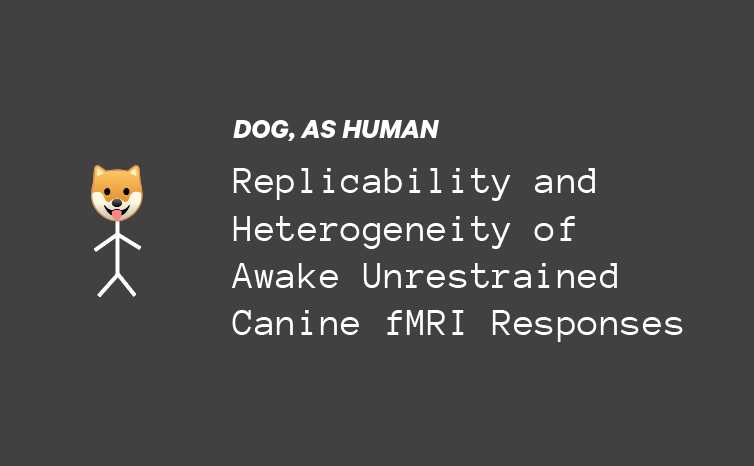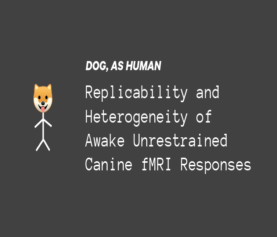
We often think back to the groundbreaking study conducted in 2013 at Emory University. More now than ever.
By treating dogs like people, the researchers were for the first time ever able to get dogs to go in an MRI scanner. From Gregory Berns in an NYT Op-Ed touting the methodology:
“From the beginning, we treated the dogs as persons. We had a consent form, which was modeled after a child’s consent form but signed by the dog’s owner. We emphasized that participation was voluntary, and that the dog had the right to quit the study. We used only positive training methods. No sedation. No restraints. If the dogs didn’t want to be in the M.R.I. scanner, they could leave. Same as any human volunteer.” -Gregory Berns (source)
What they found is that the brain of the dog is strikingly similar to that of humans. The study specifically focuses on a part of the brain called the the caudate nucleus. The caudate nucleus functions not only in planning the execution of movement, but also in learning, memory, reward, motivation, emotion, and romantic interaction. (source).
What the Emory study showed was that the canine caudate and human caudate were both activated by things that stimulated positive emotions. In other words, dogs are deeply capable of feeling.
The ethical implications of this study have yet to be fully realized. Legally, in the U.S. dogs are still considered to be property of their humans. Those animal ethics laws continue to be positively pushed forward by human activists, much work remains to be done.
After centuries of treating dogs as others, “pets,” helpers and more— its long past due that we start treating our canine companions as equals. In an uncertain era as humans struggle with crushing economics, a historic global pandemic and greater emotional isolation– the toll on our brains is immense. But who out there is looking out for our dogs, those same ones who often have to shoulder the role of emotional support, while also carrying their own daily stresses?
The time is now. Since our founding we have always taken the approach of dogs as essentially human. Our mission is heavily invested in focusing on canine mental health and wellbeing.
Today, we urge you to deeply consider the research conducted at Emory University.
| Berns, G. S., Brooks, A., & Spivak, M. (2013). Replicability and heterogeneity of awake unrestrained canine FMRI responses. PloS one, 8(12), e81698. https://doi.org/10.1371/journal.pone.0081698 |




